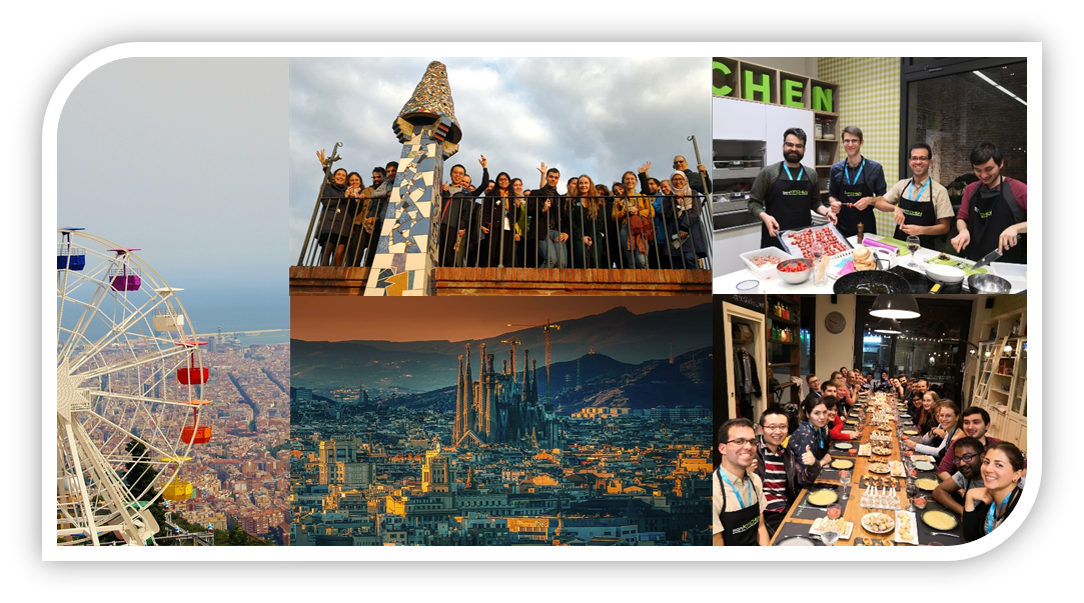Whole-cell models are very promising tools that could transform scientific research and greatly help bioengineers to design microorganisms. Achieving the development of such models requires extensive research work and collaboration among experts of different fields, such as modelers, experimentalists, mathematicians, computer scientists, and software engineers.
In 2012, a Whole-cell community was created to bring together this expertise. Since then, initiatives such as on-line seminars, hackathons and summer schools on the topic have been organized. This year, Jonathan Karr and Maria Lluch-Senar, along with a team of two organizers, three speakers and six instructors made possible the third edition of the EMBO Whole-Cell Modeling Summer School at the Centre for Genomic Regulation (CRG) in Barcelona.
The course took place on April 7th through the 13th and has been a real success, with sixty-eight applications, nineteen selected participants from thirteen different nationalities, and the presence of several MycoSynVac members, such as Maria Lluch-Senar, Samuel Miravet-Verde, Marc Weber and Luis Serrano. The course opened with two introductory lectures: one on the fundamentals of whole-cell modelling (Jonathan Karr, Mount Sinai, USA) and the other one on the experimental methods used to build such models (Maria Lluch-Senar, CRG, Spain). Other experts on the field, such as Arthur Goldberg (Mount Sinai, USA), were present and gave new insights on which are the most user-friendly software tools for whole-cell modelling. A total of 10 tutorials taught participants how to aggregate and integrate data for modeling, build large models by combining smaller models, and how to simulate hybrid models and experimentally validate them. Students had also the opportunity to train on critical engineering software.
The summer school also included multiple social activities such as the visit of emblematic places of Barcelona (e.g., Palau Güell) and a very special dinner at a tapas restaurant where you are the chef (Tapas workshop & tasting of your own creation). Good spirit and a communicative environment were omnipresent, which facilitated team building work and networking. Feedback from the participants was very positive, the average rating for the scientific content was 4.5 out of 5, and the course exceeded the expectations of 80% of the participants.



